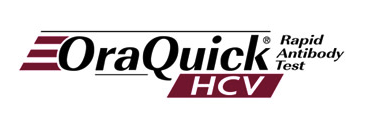 The OraQuick HCV Rapid Antibody Test by Bethlehem, Pennsylvania based OraSure Technologies Inc. is the first and, so far, only FDA-approved rapid HCV test in the U.S. approved for detection of HCV antibodies in venous whole blood specimens for at risk individuals. The test has also received the European Union CE Mark (an acronym for the French Conformite) ensuring consumer safety for use with oral fluid, whole blood, serum and plasma for HCV. The CE mark for the OraQuick HCV rapid antibody test as a Class IIa medical device was last updated by OraSure Technologies in October 2013.
The OraQuick HCV Rapid Antibody Test by Bethlehem, Pennsylvania based OraSure Technologies Inc. is the first and, so far, only FDA-approved rapid HCV test in the U.S. approved for detection of HCV antibodies in venous whole blood specimens for at risk individuals. The test has also received the European Union CE Mark (an acronym for the French Conformite) ensuring consumer safety for use with oral fluid, whole blood, serum and plasma for HCV. The CE mark for the OraQuick HCV rapid antibody test as a Class IIa medical device was last updated by OraSure Technologies in October 2013.
The OraQuick HCV test was approved for use in the United States by the U.S. Food and Drug Administration (FDA) in June 2010 for detecting HCV antibodies in fingerstick and venipuncture using a single drop of whole blood in a simple platform that enables healthcare providers to deliver an accurate diagnosis in 20 to 40 minutes, and with a claimed accuracy of greater than 98 percent.
Because HCV OraQuick test results are available in 20-40 minutes, the technology provides HIV test counselors with unprecedented opportunity to integrate rapid HCV testing into existing HIV rapid testing processes, which include risk assessment, risk reduction counseling, and results disclosure in a single session. This has the benefit of ensuring that a substantially greater proportion of clients will receive their test results, along with result-specific counseling and referrals, than with other testing methods.
OraQuick was categorized as CLIA-waived under CLIA (Clinical Laboratory Improvement Amendments) guidelines in November 2011, meaning it has been demonstrated in clinical studies conducted at intended use sites to be accurate, with sensitivity and specificity performance that meets the standards for FDA approval, and poses little to no risk of incorrect results appropriate for testing in locations such as:
- Public Health Settings
- Physician Offices
- Community-Health Clinics
- Laboratories
- Emergency Rooms
The OraQuick rapid HCV test is intended for use in people aged 11 years or older showing signs and/or symptoms that may be attributable to HCV infection, or who are in high risk factor demographics for HCV infection. OraQuick checks the blood specimen for presence of HCV antibodies, and shows whether a person has had HCV infection sometime in the past. It does not show whether the person currently has HCV infection, and it is important to note that presence of HCV antibodies detected by the rapid HCV test result has a different meaning than would presence of HIV antibodies, which means that the person has had HCV infection in the past but might have resolved the infection (cleared the virus from their system). The presence of HCV antibodies does not show whether the person currently has HCV infection, and diagnosis of current HCV infection is determined through follow-up HCV nucleic acid testing (NAT), which looks for HCV in the blood.
Key OraQuick HCV test features include:
- Rapid Results
- Point-of-care testing results in 20 minutes
- Laboratory Accuracy
- Greater than 98% accurate
- Tests for multiple HCV genotypes
- Easy-to-Use
- Fingerstick and venipuncture whole blood collection
- CLIA-waived
- Flexible Specimens for Clinical and Non-Clinical Settings
The simple fingerstick venipuncture whole blood testing proceeds in four steps:
Step 1 – Collect sample.
Step 1b – Mix sample in buffer.
Step 2 – Insert the device into the buffer.
Step 3 – Read in between 20 and 40 minutes.
The U.K. National Institute for Health and Care Excellence (NICE), an agency that provides guidance and advice to improve health and social care, has developed a Medtech Innovation Briefing (MIB24 – Published date: March 2015) on the OraQuick HCV point-of-care test for rapid detection of hepatitis C virus antibodies, noting that OraQuick HCV is intended for use in the community, in GP practices or in mobile clinics targeted towards people at risk of hepatitis C.
Infection with the bloodborne hepatitis C virus (HCV) predominantly infects liver cells, and can lead to cirrhosis of the liver, primary liver cancer or liver failure. Usually transmitted through blood-to-blood contact, NICE estimates that around 90 percent of UK-diagnosed HCV infections will have been acquired through intravenous drugs injections.
Noting that approximately 50 percent people in the UK who have injected drugs carry HCV, NICE’s guidance on advocating and offering testing identifies members of the following demographics as being at increased risk:
- People who have ever injected drugs.
- People who had a blood transfusion before 1991 or blood products before 1986.
- People born or brought up in a country with a 2% or greater prevalence of chronic hepatitis C.
- Babies born to mothers infected with hepatitis C.
- Prisoners, including young offenders.
- Children and young people living in care homes.
- People living in hostels for the homeless or sleeping on the streets.
- HIV positive men who have sex with men.
- People in close contact with someone known to be chronically infected with hepatitis C.
NICE notes that its at-risk list includes vulnerable individuals difficult for the health care systems to engage, and that in cases of acute HCV infection, symptoms that may appear a few weeks after exposure to the virus include: high body temperature; tiredness; loss of appetite; stomach pains and nausea; and sometimes jaundice However, the agency cautions that many HCV-infected people will either have no symptoms, or only minor and nonspecific symptoms, giving them less incentive get tested for HCV or seek treatment.
The immune systems of about 20 percent of HCV infected persons will be able to eliminate the virus without any medical care and they will have no further symptoms (provided they don’t become reinfected). In the other 80 percent, HCV can persist in their bodies for years as chronic phase HCV infection, accompanied by a range from few and minor symptoms to ones that may significantly affect their quality of life.
While chronic HCV infection is associated with increased risk of irreversible liver damage (cirrhosis) and liver cancer, if it is detected before serious complications develop, treatments are available, and as noted above, the OraQuick HCV test can detect antibodies against hepatitis C virus with oral fluid, fingerstick blood, venous blood, plasma or serum testing and provide results in 20 – 40 minutes, which is much quicker turnaround than traditional testing of venous blood samples or dried blood spot samples in a laboratory.
In the briefing guide, NICE cites eleven published studies showing OraQuick HCV to have very high sensitivity and specificity, nine of which reported diagnostic performance data. Seven of the studies used oral fluid samples for OraQuick HCV testing, and nine used blood (fingerstick or venous blood) or bloodfraction samples (plasma, serum). Five studies used the OraQuick HCV in a community or mobile clinic setting and two studies looked at crossreactions that could give rise to inaccurate OraQuick results.
NICE reports that he studies showed OraQuick HCV (using blood, plasma and serum samples) to have a very high sensitivity and specificity, and no safety issues were identified with the OraQuick HCV.
In cases where positive test results are returned using either OraQuick HCV or conventional testing, further investigation will be required in order to determine whether active HCV is present, and whether the person needs medical treatment.
The NICE Medtech Innovation Briefing 24 with full summaries of the eleven clinical studies can be accessed at:
https://www.nice.org.uk/advice/mib24
California Department of Public Health Office of AIDS guidelines for Hepatitis C Testing in Non-Health Care Settings, intended to provide guidance to human immunodeficiency virus (HIV) testing sites in non-health care settings such as community-based organizations (CBOs), and to HIV test counselors performing the OraQuick1 hepatitis C virus (HCV) rapid test, outlines recommendations for conducting OraQuick HCV rapid testing, including provision of HCV testing services and referrals.
The California guidelines document (PDF) can be downloaded at:
http://bit.ly/1FRueum
For more information about the OraQuick HCV rapid test from the test’s manufacturer, see the manufacturers website:
http://bit.ly/1G5R3e1
or call 1-800-ORASURE (1-800-672-7873).
Sources:
OraSure Technologies Inc.
National Institute for Health and Care Excellence (NICE)
CLIA (Clinical Laboratory Improvement Amendments) – NIH
California Department of Public Health
Image Credits:
OraSure Technologies Inc.


